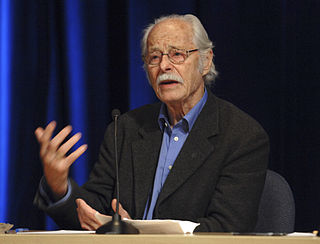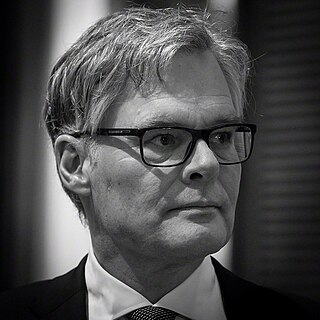Fredrik Jostein Løfsgaard (21 September 1923 – 27 May 2011) was a Norwegian academic executive.

Norway, officially the Kingdom of Norway, is a Nordic country in Northern Europe whose territory comprises the western and northernmost portion of the Scandinavian Peninsula; the remote island of Jan Mayen and the archipelago of Svalbard are also part of the Kingdom of Norway. The Antarctic Peter I Island and the sub-Antarctic Bouvet Island are dependent territories and thus not considered part of the kingdom. Norway also lays claim to a section of Antarctica known as Queen Maud Land.
He was born in Flisa as a son of Kari and Arne Løfsgaard. [1] He finished his secondary education in 1944 and graduated from university with the cand.jur. degree in 1949. He was a secretary at the Norwegian College of Agriculture and Norges Tannlegehøgskole before being hired as faculty secretary at the University of Oslo. He advanced via the positions of questor (financial executive) and secretary to being assistant university director from 1969. From 1987 to 1988 he served as university director. He was then a special adviser until his retirement [2] in 1993. [1]
Flisa is a small town in south-eastern Norway, and the administrative centre of Åsnes municipality. Its population as of 1 January 2012 is 1,623.
Arne Adolf Løfsgaard was a Norwegian farmer and politician for the Agrarian Party.
Examen artium was the name of the academic certification conferred in Denmark and Norway, qualifying the student for admission to university studies. Examen artium was originally introduced as the entrance exam of the University of Copenhagen in 1630. The University of Copenhagen was the only university of Denmark-Norway until The Royal Frederick University in Christiania was founded in 1811.
He was a board member of the Foundation for Student Life in Oslo from 1980 to 1987, and also of the University of Oslo International Summer School and Regneanlegget Blindern-Kjeller. He has been involved in the crediting of university degrees in the Council of Europe and the Organisation for Economic Co-operation and Development. [2]

The Council of Europe is an international organisation whose stated aim is to uphold human rights, democracy and the rule of law in Europe. Founded in 1949, it has 47 member states, covers approximately 820 million people and operates with an annual budget of approximately 500 million euros.
He resided in Bekkestua. [2] He died in May 2011. [1]

Bekkestua is a town in the municipality of Bærum, Norway, with a busy bus terminal and a station on one of Oslo's westbound T-bane lines, Kolsåsbanen. It also has its own library, police station and fire station. It has grown to be the second largest centre of the municipality after Sandvika, with small restaurants and shopping centres.



